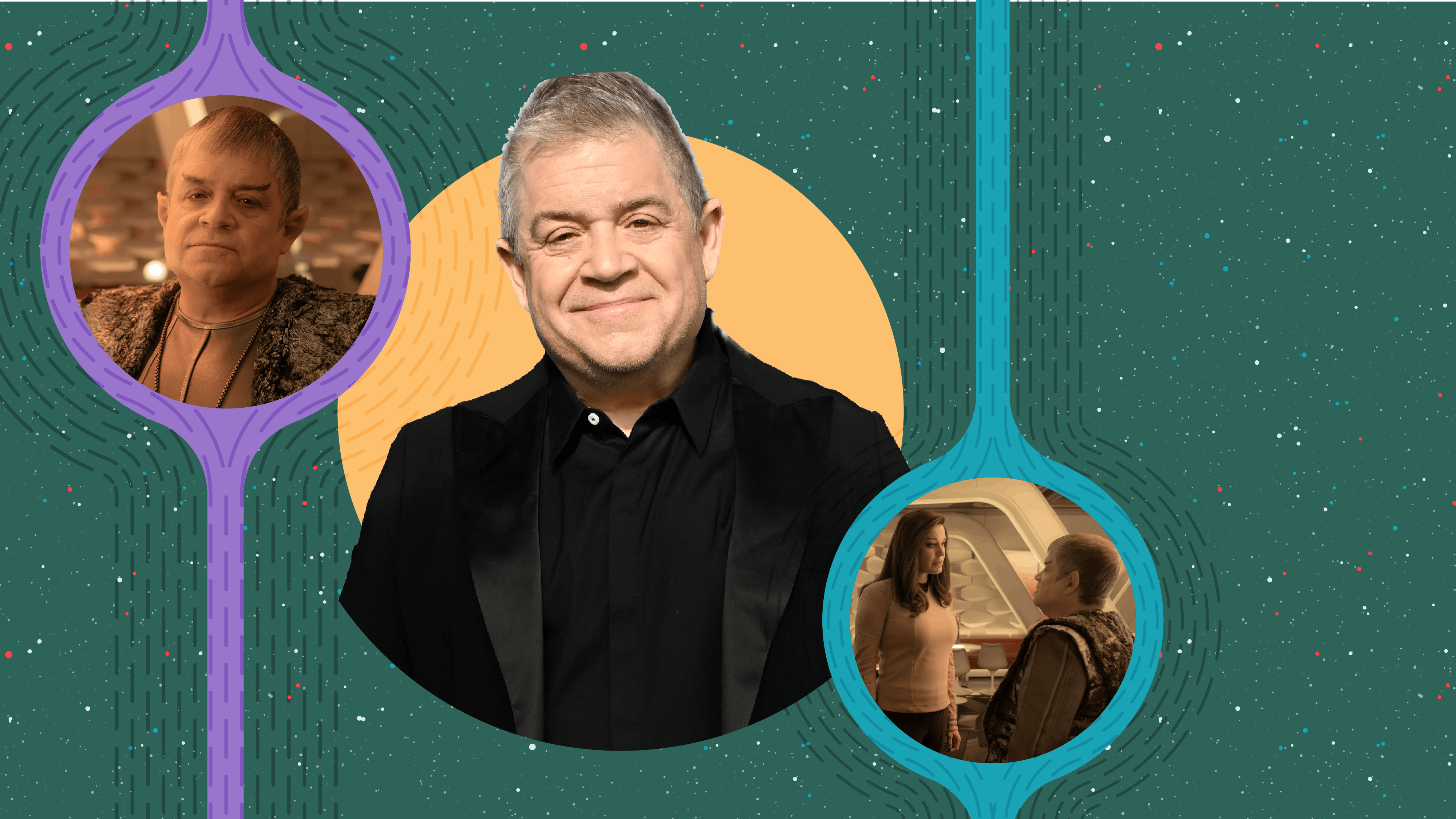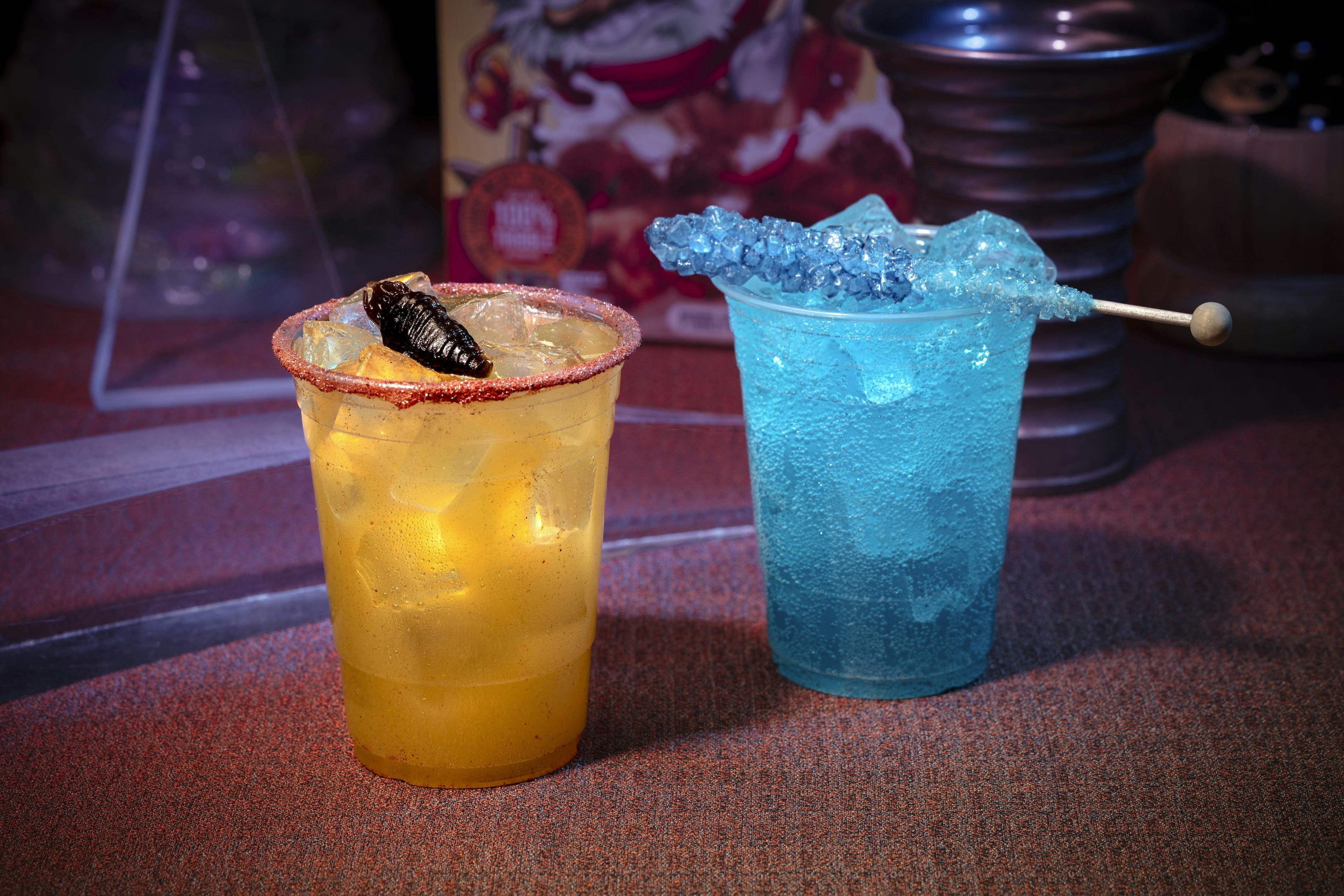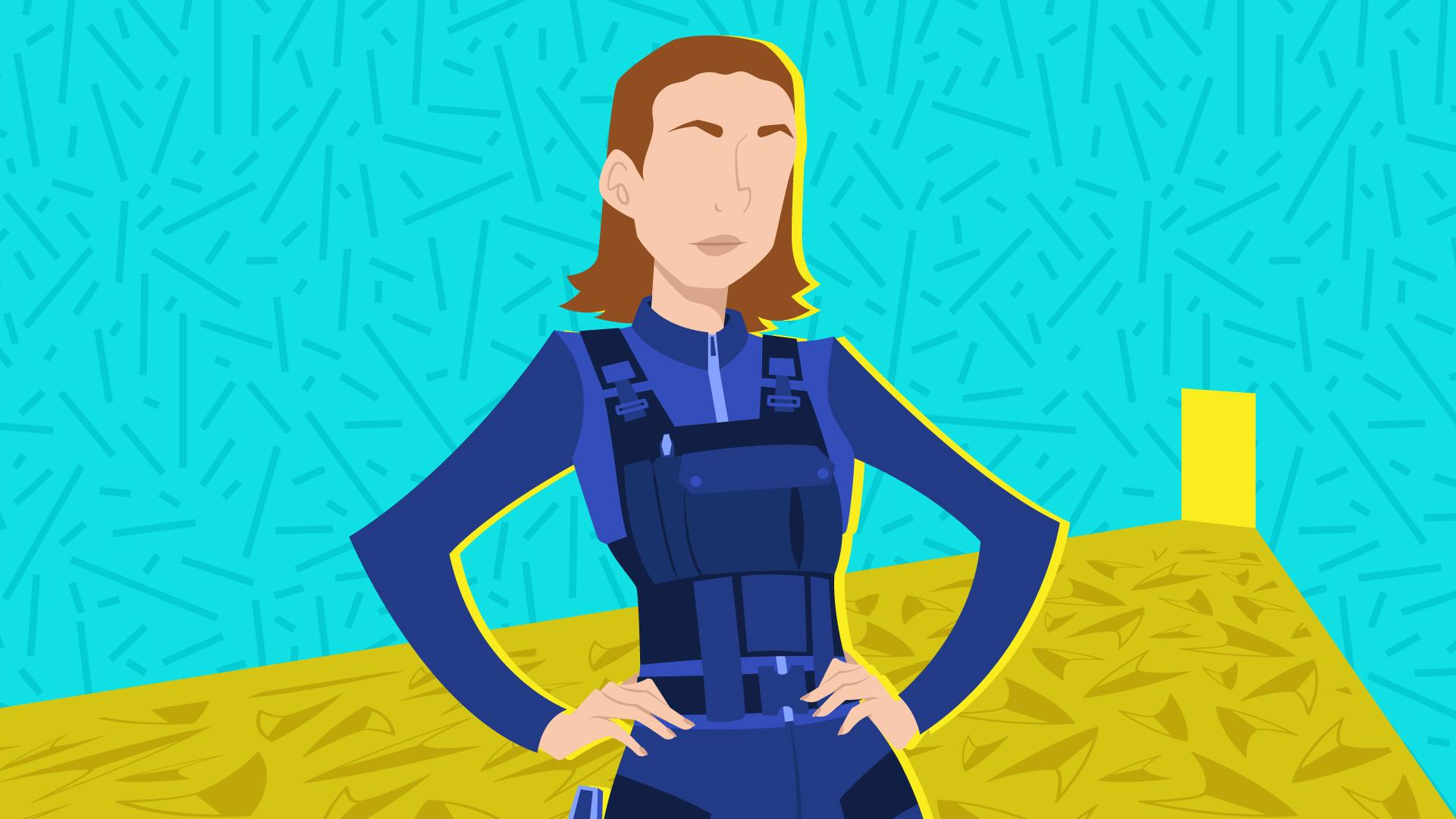Published Sep 12, 2023
WARP FIVE: Lower Decks Pays Tribute to Star Trek Animation, Voyager, and Bone Drinking Creatures
Animator and supervising director Barry Kelly details Season 4's opening episodes, how the series fits in Star Trek's legacy, and more!
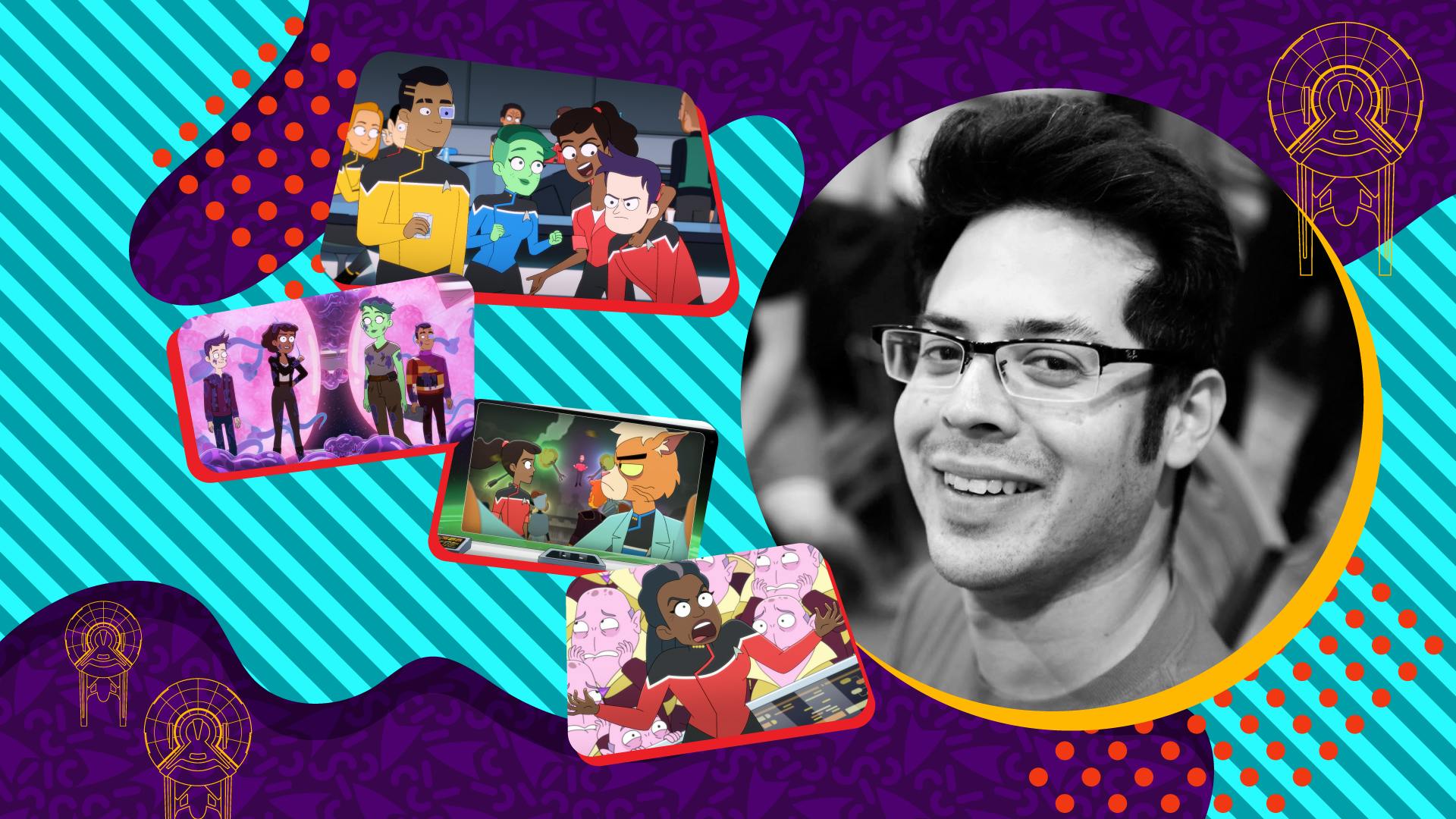
StarTrek.com
Welcome to Warp Five, StarTrek.com's five question post-mortem with your favorite featured talent from the latest Star Trek episodes.
In conjunction with , which celebrates 50 years of Star Trek animation, fans of the franchise were treated to the return of our favorite lower deckers with the Season 4 premiere of !
This season, an unknown force is destroying starships and threatening galactic peace. Luckily, the crew of the U.S.S. Cerritos isn’t important enough for stuff like that. Instead, Ensigns , , , and all face their greatest challenge yet — getting promoted!
Ahead of the premiere, StarTrek.com had the opportunity to chat with the series’ animator and supervising director Barry Kelly on the benefits of animated storytelling versus live-action, designing everyone’s new favorite bone drinker, being part of Star Trek’s rich animated history, and more!
Star Trek: Lower Decks - Tuvixed
The Beauty of Animated Storytelling
When premiered 50 years ago, it afforded the franchise opportunities to explore strange new worlds and seek out new lifeforms that would have been constrained with the realities of a live-action production.
“The beauty of animation is just how flexible the medium is,” shares Kelly. “The more reduced of a medium you get- let’s say it goes from live-action film where it’s super big with its too big to fail attitude, you’ve got to be pretty safe. Then you scale down to TV where you got a longer format, and you can get a little bit riskier. Animation is in the middle of all those worlds where, because it’s hand-drawn, you can create the world you want to see, you’re at the limits of what the artists and time are capable of.”
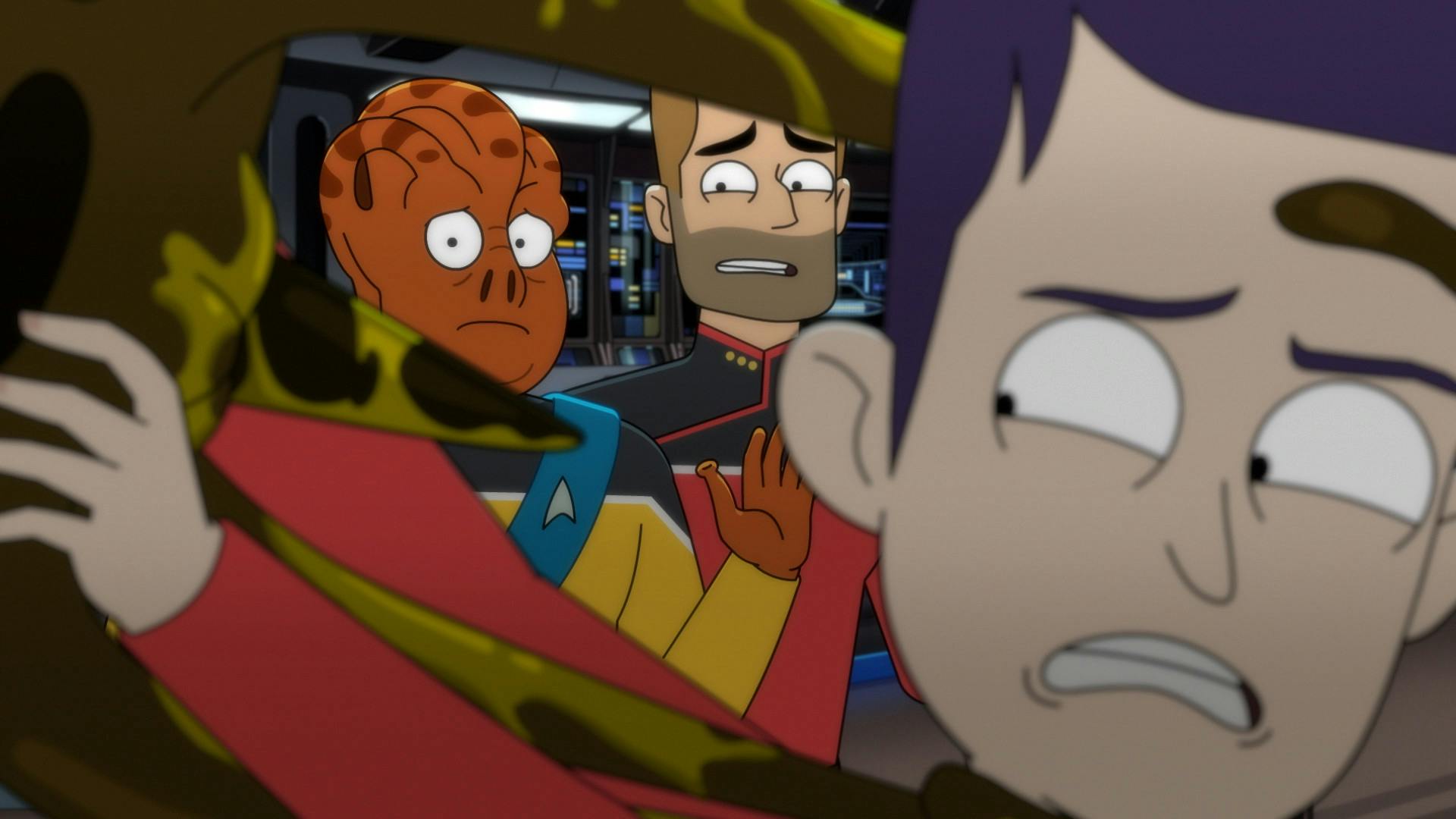
"Twovix"
StarTrek.com
Kelly sees this flexibility extending to publishing, adding, “You reduce it down more, then there’s comics books where you can get even crazier with the stories because it's less expensive, creative-wise. You go down to novels where it's just print on paper, and you can get even more creative because of how much less expensive the production gets. But animation, to me, has just been in that sweet spot in the middle of all those; that is a good medium that can go to any genre or go to any space we need. It can be scary, it can be funny, it can be heartfelt, it can be annoying. We can make you really annoyed with characters just to make you, in turn, love them — make them a heel to turn them into a hero.
The Lower Decks’ Style
Kelly has been part of Star Trek: Lower Decks since its first season. The series has largely been a love letter to the franchise as a whole while offering fans a look to unexplored areas of Starfleet that don’t involve flagship starships or heroic, larger-than-life bridge crews. In the fourth season’s premiere episode, “Twovix,” Lower Decks pays tribute to .
Speaking to his experience with Titmouse’s approach to animation, and how it incorporates the franchise’s rich history and distinct looks, Kelly reveals, “We just try to embrace the different styles and try to make them work with each other.”
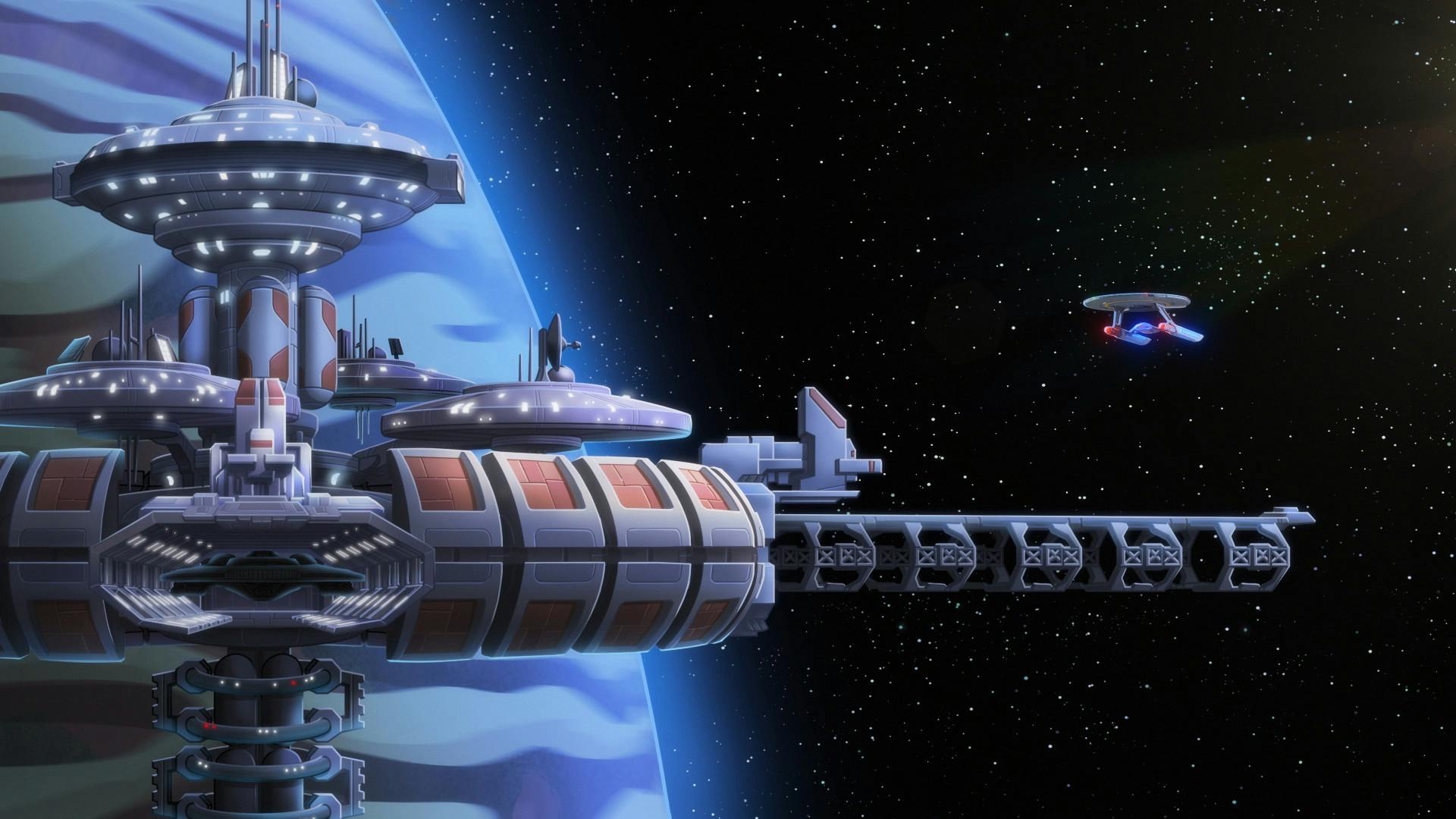
"Twovix"
StarTrek.com
“In my head, I don't want you to look at the Cerritos or look at a live-action ship on a live-action show and think in Lower Decks, ‘Oh, it's going to look like a zany cartoon version of it.’ I want you to look at it and say, ‘Oh, that's the ship, that's the Enterprise-D. That's exactly what it looks like,’” adds Kelly, detailing the line the animators adhere to. “Even though it's an illustrated, I want you to feel like, ‘Oh, that's the ship from that live-action show.’ Likewise, if the Cerritos, let's say, ever showed up in live-action, you'd be like, ‘Oh, that's it.’ Even though it'll probably have more texture and more lens flares and more detail and more fidelity and all that stuff, it'll still look like, ‘Oh, that's the thing from the cartoon.’ That's exactly it.”
Summing up their north star, Kelly states, “I just want you to be able to see something and recognize it instantly. Even if it's a translated version of it's still an iconic version that you- It's like comic book characters. Anytime I draw one, I'm trying to make the most iconic version of it so that when you look at it, boom, you know who it is, and you don't have to question. Clarity is key. Clarity is what we're striving for in what the characters are doing, what the characters look like, who they are, what their motivation is. Clarity is always our best friend that we're trying to be better friends with, if that makes sense.”
Designing Star Trek’s Cuddliest Yet Deadliest Creature
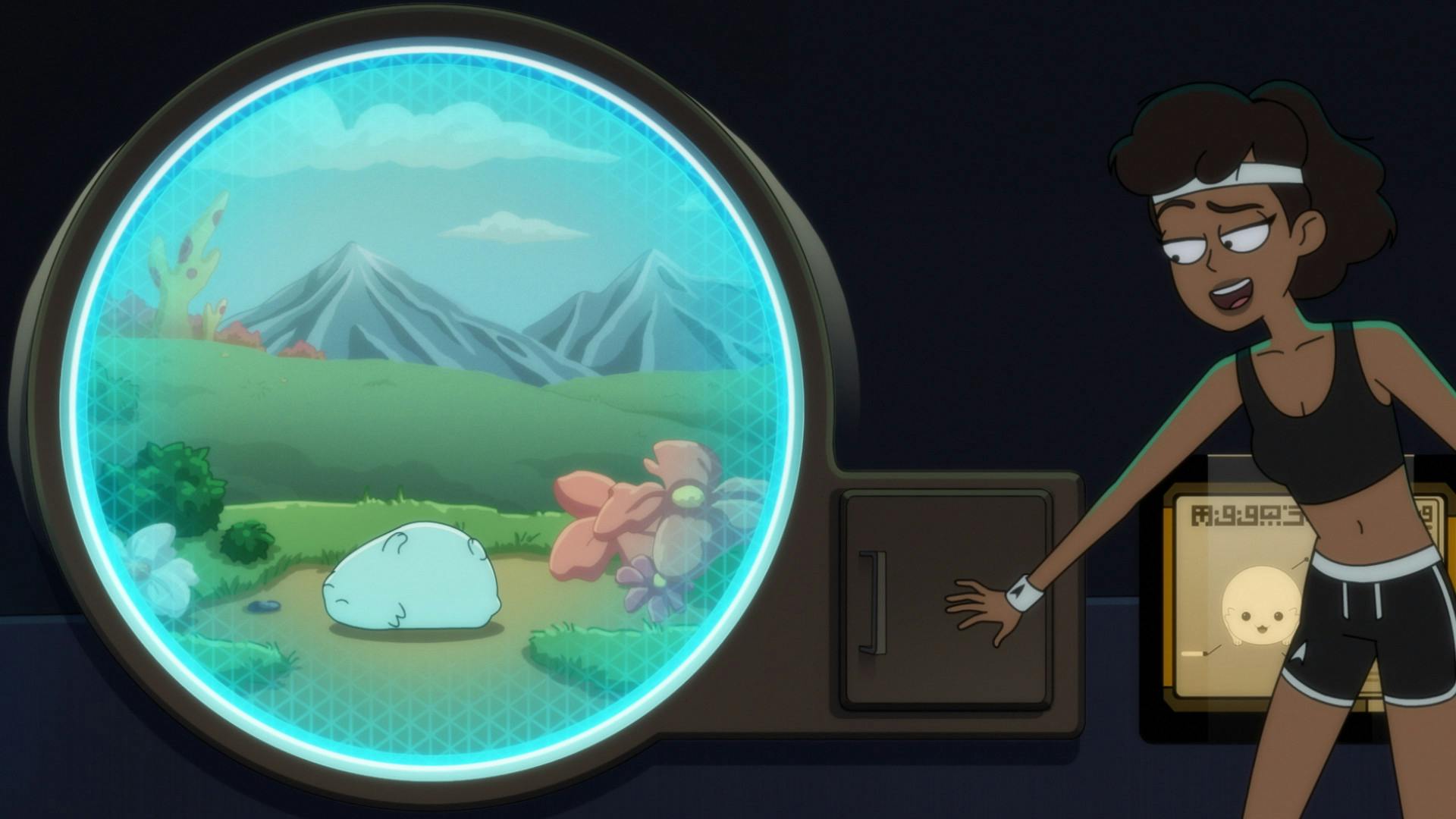
"I Have No Bones Yet I Must Flee"
StarTrek.com
In the fourth season’s second episode, “I Have No Bones Yet I Must Flee,” while Ransom, Mariner, and Gary are on an away mission at a menagerie, we’re introduced to the cute and fluffy Moopsy. Unfortunately for all present, Moopsy is freed from its cell, and especially unfortunate for our Starfleet officers, the menagerie’s curator failed to mention that everything at the menaj is incredibly dangerous. How dangerous, you ask? Well, far more dangerous than the Swamp Gobblers because Moopsy drinks your bones!
What is the animators’ approach to designing creatures and/or characters that haven’t yet existed in the franchise? Kelly explains, “To the strength of Mike [McMahan] and the writers, a lot of the descriptions are great. When you get a script or even when you’re writing a script, how much direction do you give in the action lines? They’re pretty great at staying general in a good way so that it tells us just enough that the story needs, and we can take it from there and inspire it visually.”
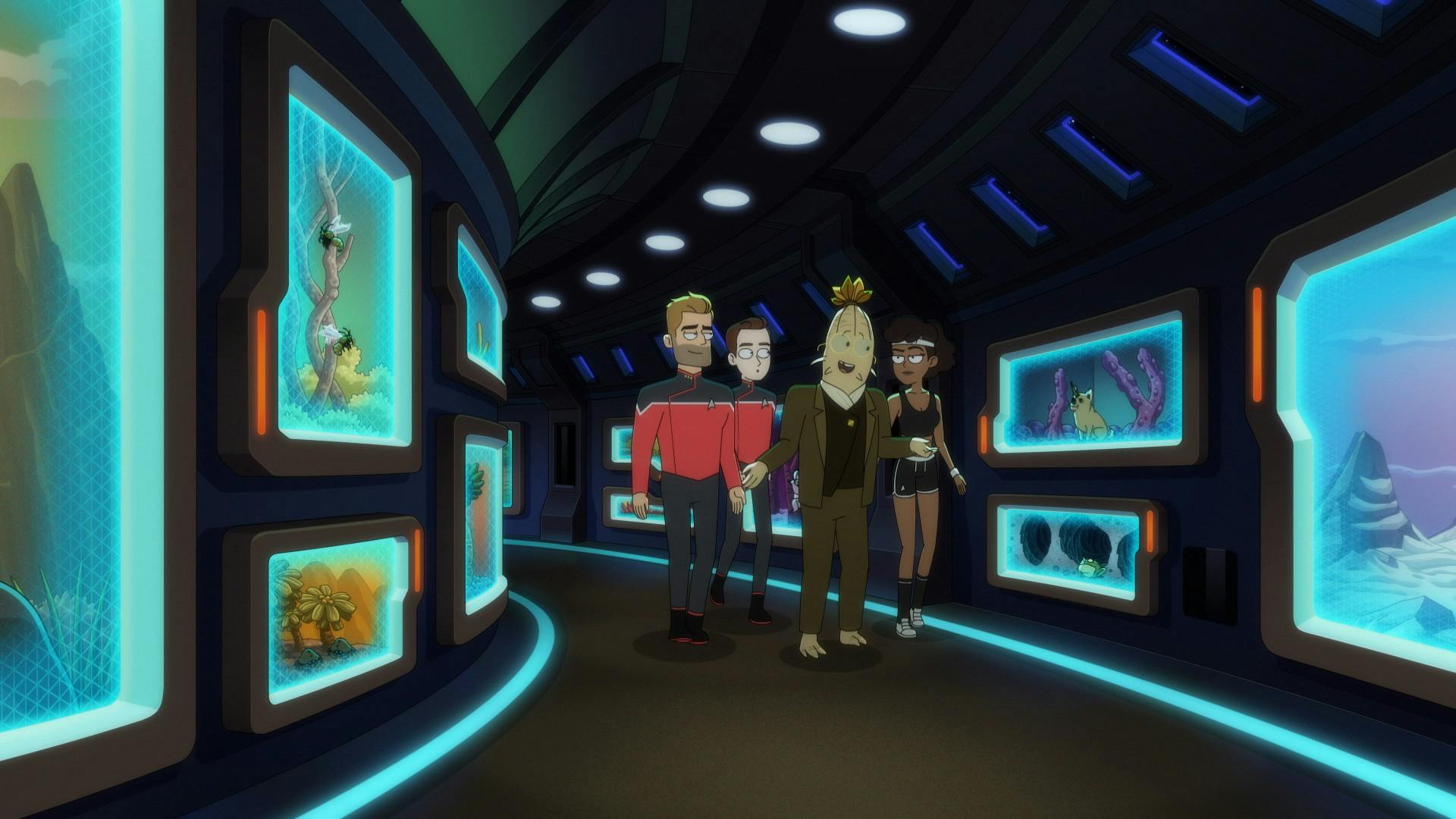
"I Have No Bones Yet I Must Flee"
StarTrek.com
For Moopsy specifically, Kelly recalls, “With that one, in my head, I’m like, ‘I just want to make a Star Trek Pokémon.’ I want to make to make the cutest little… I’m a nerd. I love toys and figures so it’s almost like when you give me something like Moopsy, I want to make something that, I just want to make it look like I can eat it. I want to bite it. It’s tactile. It’s like a lot of great Pokémon designs or cute emoji designs. You want to make something that feels like you could touch it and eat it, like it’s candy or something. Moopsy is a perfect example of that.”
“Some of our robot AI characters are like that,” adds Kelly. “There's a lot of things that we can make those characters do that the live-action shows can't. That's where we really push the medium, so that we can make the design something that you couldn’t probably translate into live-action. It'd probably be really scary and really creepy, but we can make the cuter graphic iconic version of it and make it cute when we need it to be cute and make it scary when we want it to be scary.”
An Unforgettable First Contact
As a self-professed nerd, Kelly would never forget his first contact. That’s because at the tender age of five years old, it was a traumatizing experience.
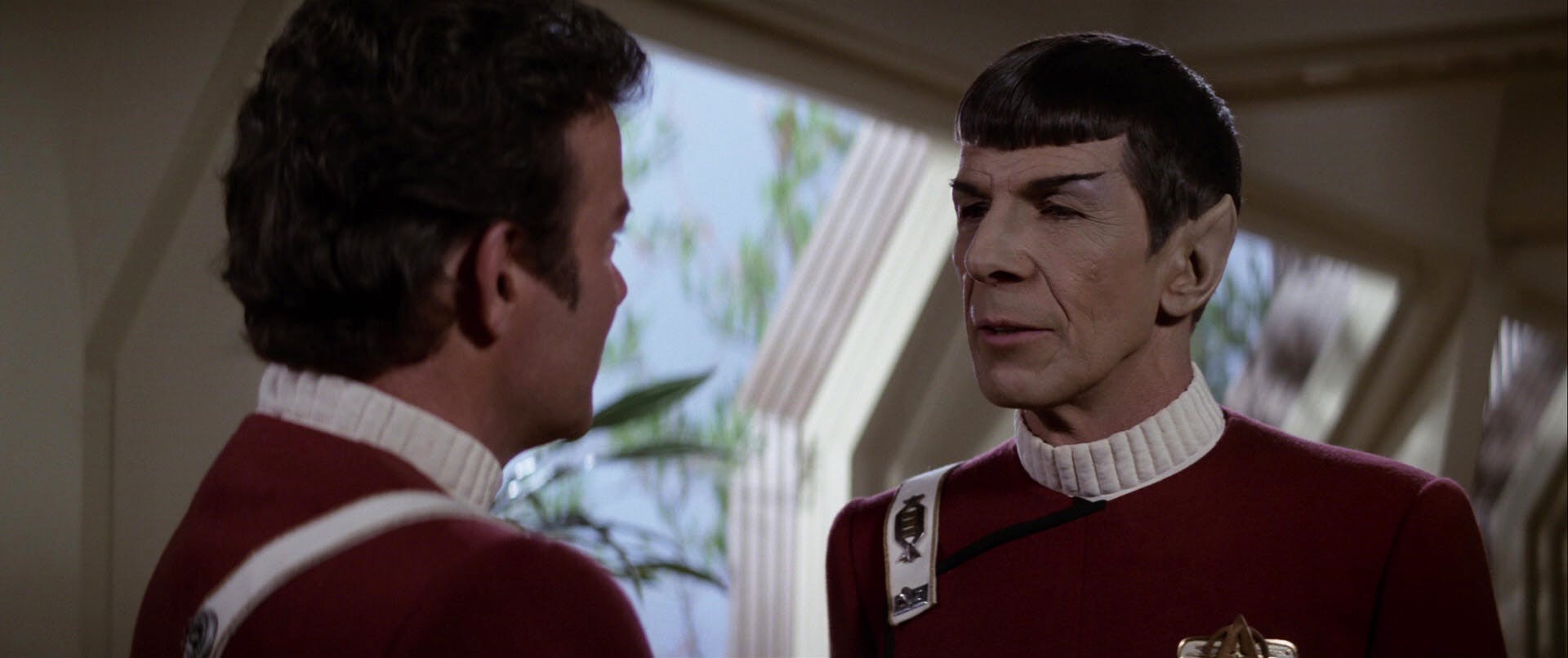
Star Trek II: The Wrath of Khan
StarTrek.com
Shedding light on his statement, Kelly shares, between laughs, “It’s an awful memory; it’s really hard. I'm pretty sure when I saw , I knew who Spock was. My brother was watching it, and on this same day, we had just watched Transformers: The Movie, and I watched Optimus Prime die. Then we watched Wrath of Khan after, and it was my first time seeing it. My brother had seen it. We just rented both, because it's what I wanted, and we watched it. I knew who the characters were. I remember understanding what's going on, and my first real emotional connection, heart element was Spock dying. It was one of the saddest things I'd ever seen, and it was on the back of Optimus Prime dying. I'm like, ‘How could this day get any worse? You telling me Spock dies?’”
How did he process this heart-wrenching double feature as a kid? “I didn't really have a context, but I understood the moment,” reflects Kelly. “It was one of the first times I understood that, probably what death meant to a character, and how to respond with it and how to move on — that death happens and there's 10 minutes, 12 minutes of the movie left after that. William Shatner's performance is incredible in it; Leonard Nimoy's performance is incredible it. It broke my heart, and I've watched that movie. has grown in my heart as probably my favorite Star Trek movie since then, but Spock dying in Wrath of Khan is a very triggering childhood memory, because it was two heroes dying in the same day — one animated and one Star Trek.”
On Being Part of Star Trek Animation’s 50 Years Legacy
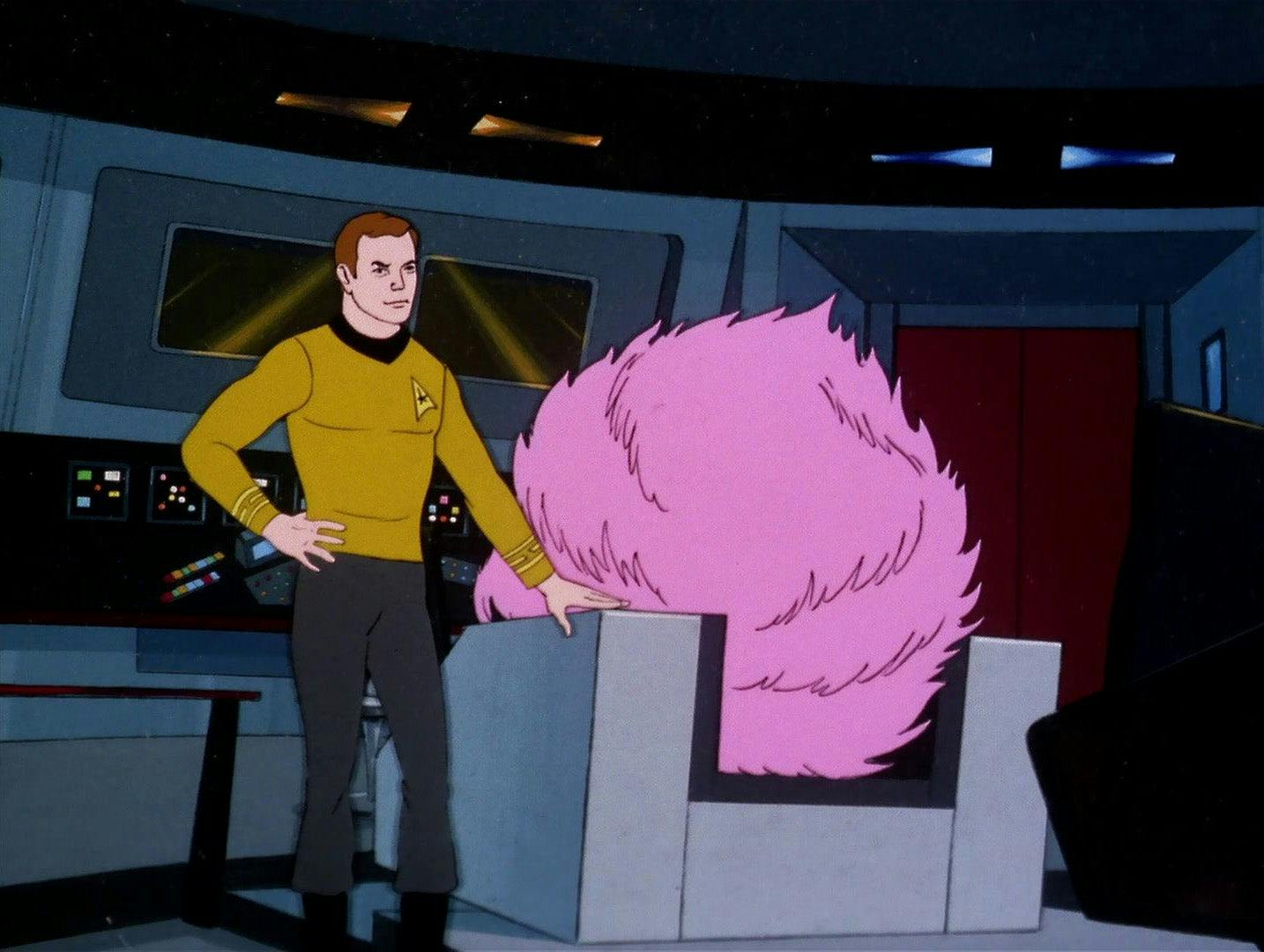
"More Tribbles, More Troubles"
StarTrek.com
Closing out the conversation, Kelly notes, “It's an honor to be a part of the TAS legacy. I love that old cartoon. It's definitely for adults, and even though it's very rudimentary, that old cartoon, they were still able to do things the live-action shows couldn't; even though it was limited, and they held cells and stuff like that for acting, and they couldn't go too crazy. But that old show, it's a pretty awesome concept to know that they tried to make those scripts that didn't make it to the live-action world and made animated versions of them. That's awesome. I would love to continue doing that. If we can make more Star Trek shows and continue making Lower Decks, that would be a dream.”
“Seven and a movie,” pitches Kelly. “Let's keep asking for seven and a movie. Let's get the TNG sprawl. Let's get that going!”

